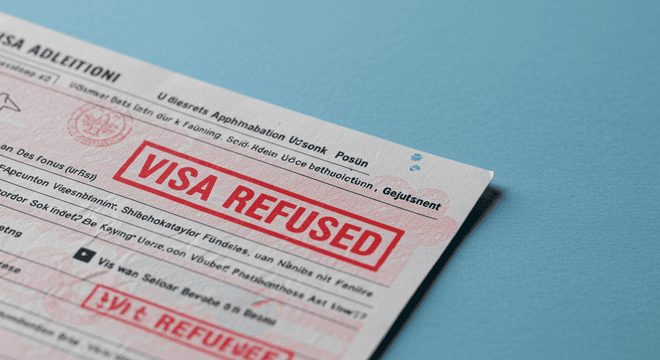
Understanding the Subject to Regularization (STR) Visa in Nigeria
Introduction
Nigeria, as Africa’s largest economy, attracts expatriates from around the world for employment, investment, and business opportunities. The Subject to Regularization (STR) Visa is a key immigration document that allows foreign nationals to take up long-term employment in Nigeria. This visa is the first step towards obtaining a Combined Expatriate Residence Permit and Aliens Card (CERPAC), which legalizes an expatriate’s stay and work in the country.
What is the STR Visa?
The STR Visa is an entry visa issued to expatriates who have secured employment, investment opportunities, or other professional engagements in Nigeria. It is granted based on an offer of employment from a Nigerian company that has obtained the necessary approvals from the Federal Ministry of Interior (FMI).
Eligibility and Requirements for STR Visa
To apply for an STR Visa, the applicant must fulfill the following requirements:
Letter of Employment – A formal job offer from a Nigerian company.
Expatriate Quota Approval – The employer must have an approved expatriate quota from the Ministry of Interior, specifying the number of foreign employees permitted.
Valid Passport – The applicant must have a passport with at least six months of validity.
Completed Visa Application Form – The applicant must fill out the appropriate forms via the Nigeria Immigration Service (NIS) portal.
Letter of Acceptance from the Employee – The expatriate must formally accept the job offer.
Curriculum Vitae and Educational Qualifications – Documents proving the expatriate’s professional and academic credentials.
Evidence of Registration with Relevant Professional Bodies (if required for the role).
Police Clearance Certificate – A report from the applicant’s country of residence proving no criminal record.
Medical Clearance Certificate – A health certificate proving the applicant is free from contagious diseases.
Application Process
The process of obtaining an STR Visa includes the following steps:
Employer Secures Expatriate Quota – The Nigerian company applies for and obtains approval for the expatriate quota from the Federal Ministry of Interior.
Visa Application Submission – The expatriate submits the required documents to the Nigerian Embassy or Consulate in their home country.
Visa Issuance – Upon successful review, the STR Visa is issued, allowing entry into Nigeria.
Regularization with the Nigeria Immigration Service (NIS) – Within 90 days of arrival, the expatriate must submit an application for regularization of stay, leading to the issuance of a CERPAC (Work & Residence Permit).
Duration and Renewal
The STR Visa itself is valid for 90 days.
Upon arrival, expatriates must apply for a CERPAC, which is typically valid for one to two years and renewable based on continued employment.
Renewals are subject to confirmation of employment and compliance with Nigerian immigration laws.
Penalties for Non-Compliance
Failure to regularize an STR Visa within the stipulated 90-day period may result in penalties, including fines, deportation, or blacklisting from entering Nigeria. Employers who fail to comply with expatriate employment regulations may also face legal consequences.
Conclusion
The STR Visa serves as a crucial entry requirement for expatriates seeking employment in Nigeria. By ensuring compliance with the visa and residency regulations, both employers and employees can contribute to a smooth and legally sound expatriate employment process in the country. Proper adherence to the STR Visa requirements enables seamless business operations and fosters international talent integration into Nigeria’s workforce.

